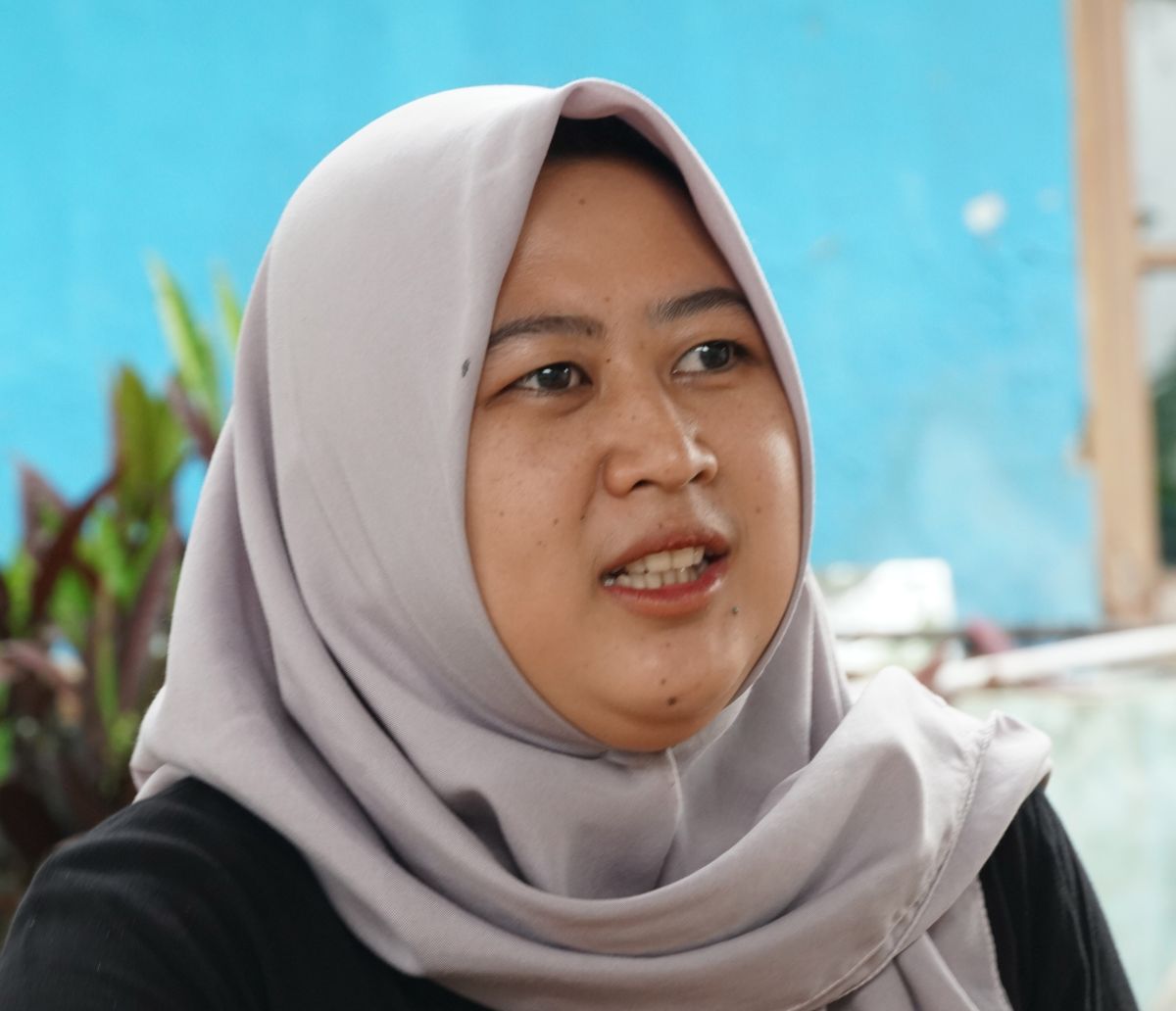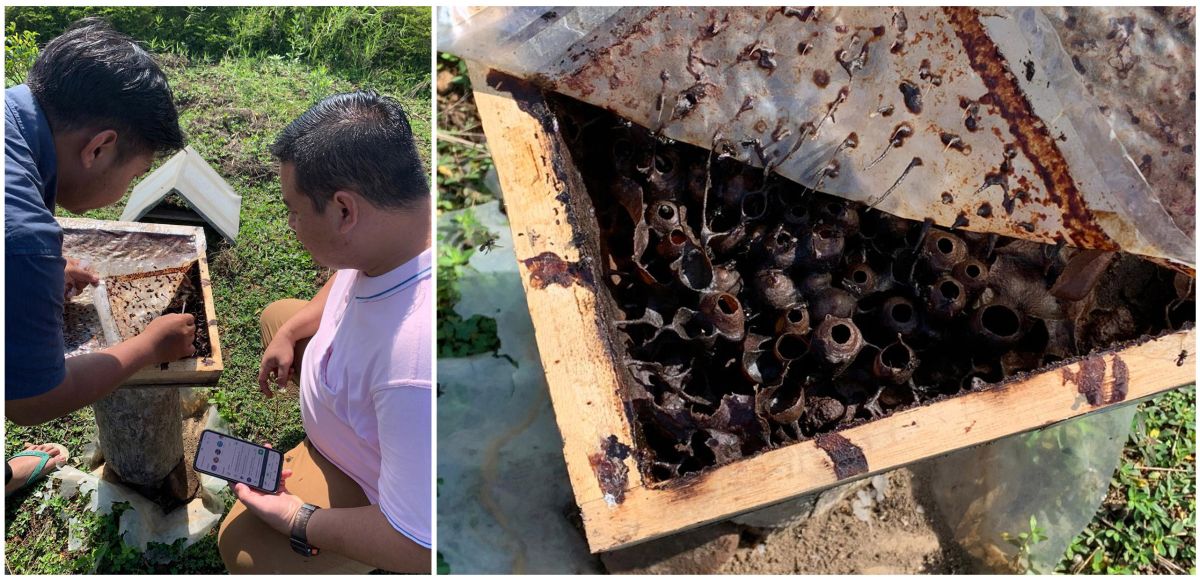Stories from Ciwidey: Youth and social forestry in Indonesia

People aged 16–30 make up approximately 24 percent of Indonesia’s population. In the social forestry sector, their participation is crucial to ensuring that the vision to allocate 12.7 million hectares of land for social forestry by 2030 can be achieved.
RECOFTC Indonesia has been providing training and capacity building to support young people to take on more active roles in social forestry schemes. Our gender equality and social inclusion (GESI) team has been organizing trainings bringing youth from across the country together to learn, network and share knowledge.
Among these trainings was an event organized in May 2024 to engage with young farmers trying to develop their livelihoods in social forestry. The capacity building and networking event on social forestry management aimed to reach out to young people whose parents are involved in the country’s social forestry programme. We hoped to show youth from farming families, especially forest farmers, that continuing their parents' work managing land under agroforestry systems is a viable and sustainable livelihood option.
Our GESI team recently followed up with three of the training attendees in Lebak Muncang, a village in Ciwidey, South Bandung Regency, West Java, to see how the young people, with their new knowledge on social forestry concepts are faring in a practical setting. Their stories give us glimpses into the worlds of young people who are at various stages of building and solidifying their livelihoods through social forestry.
Sopian
"I want to become a successful farmer," says Sopian. For him, a successful farmer is someone who owns at least one hectare of land, has their own capital and can market their agricultural produce themselves.
The 24-year-old currently helps his parents manage a ‘ciplukan’ (Physalis angulataor morel berry) farm and a coffee plantation on Perum Perhutani land. The family harvest 10–30 kilograms of fruit from the ciplukan farm every two weeks. So far, Sopian’s responsibilities have largely been at the marketing end. This includes packaging and sometimes delivering the produce to buyers.
However, since attending the RECOFTC youth training, Sopian says he has been thinking about how to build a future for himself in social forestry. He sees potential for a secure future in it. He has taken over the cultivation of 450 square meters of land from his father, where he will be planting 70–100 ciplukan trees. “I’m currently preparing the land. The harvests, when they are ready, will belong to me,” he says proudly.
This has been a long journey for Sopian, who entered farming around a decade ago upon his father’s insistence. He says he has now arrived at a place where he feels comfortable taking initiative and is working towards becoming a successful young farmer in his own right.
Nurul Fajrin
Nurul Fajrin took on the role of secretary of the Caringin Bumi Asih Cooperative three months ago. Over this period, she also has been involved in the cooperative’s salted fish business, helping package and sell the salted fish.

Fajrin says the youth training helped her gain confidence. "It was a great opportunity to learn as well as to network with the other participants," she says. She adds that she was inspired by how a climate village in Jakarta manages its waste. “I would love to see a similar waste management programme be implemented in my village.”
Fajrin is approaching the future with an open mind. While she doesn’t have immediate plans to take on the task, she says she wants to learn more and see what the future has to offer. “I want to gain more knowledge,” says the 28-year-old. For now, she is focusing on gaining knowledge on agroforestry and social forestry and continuing her role at the cooperative.
Ihsan Yudha
Ihsan Yudha manages 15 stingless honeybee (‘kelulut’) hives spread across 500 square meters of land. Yudha, who is 28, used to be a teacher prior to 2020. However, after the COVID-19 pandemic hit, he returned to Ciwidey and never looked back.
He had initially helped his father manage a one-hectare coffee plantation. It was during this time that he discovered stingless bees. “There was a nest hanging from a big tree on the plantation,” he says. “I didn’t know what it was and I threw a rock at it. It fell, and bees swarmed out.”

“I examined the sticky liquid oozing out of the nest and saw that it was honey,” he adds. “It was a blessing from the forest. I started learning about stingless bees and decided that my future was tied to them."
Unlike regular honeybees, which store honey in hives composed of hexagonal honeycomb cells, stingless bees store honey in small pot-like structures made of tree resin and wax. These pots are brownish black in colour, spherical or ovoid in shape, and irregularly arranged. They can be extracted to be sold as propolis (bee glue), generating income additional to honey sales.
While honey is his primary project for now, Yudha is also testing out other ventures. He has started a hydroponics garden. During our visit, we saw rows of strawberry being grown in recycled water gallon containers. The bases of these containers held water, where catfish were kept.
The 500-square-meter plot that is currently under his management has one permanent building and a number of temporary structures. There are also facilities for making compost. The permanent building is equipped with six solar panels that generate up to 1,500 watts of electricity. The solar power, which is stored in four batteries, is primarily used for lighting at night. "I haven't recharged my electricity tokens in months," Yudha says, smiling.
His farming ambitions grow stronger every day. He wants to turn his farm into an educational tourism destination where young people, especially youth from Ciwidey, can learn about smart farming. "It’s essential to think about economic returns,” he says. “If you're not smart about your farming, it's hard being a farmer. With the hard work we have to put in, working with the earth and engaging in physical toil, many young people cannot see value in the work if the income is low.”
“I want to show that this does not have to be the case,” says Yudha. “Smart farming can be a great livelihood option for youth.”
###
Reny Juita is community forest partnership coordinator at RECOFTC Indonesia.
RECOFTC’s work is made possible with the support of the Swiss Agency for Development and Cooperation and the Government of Sweden.

